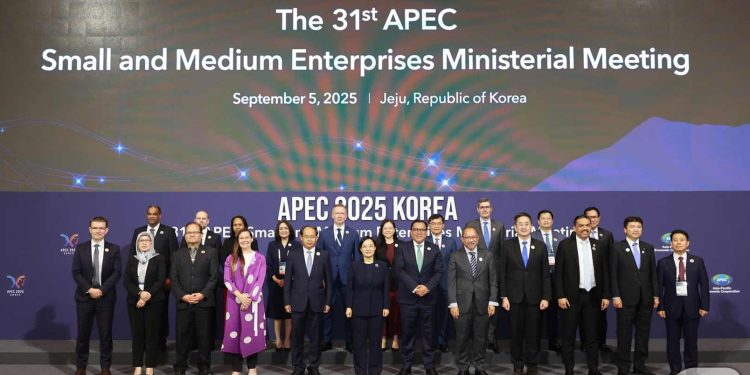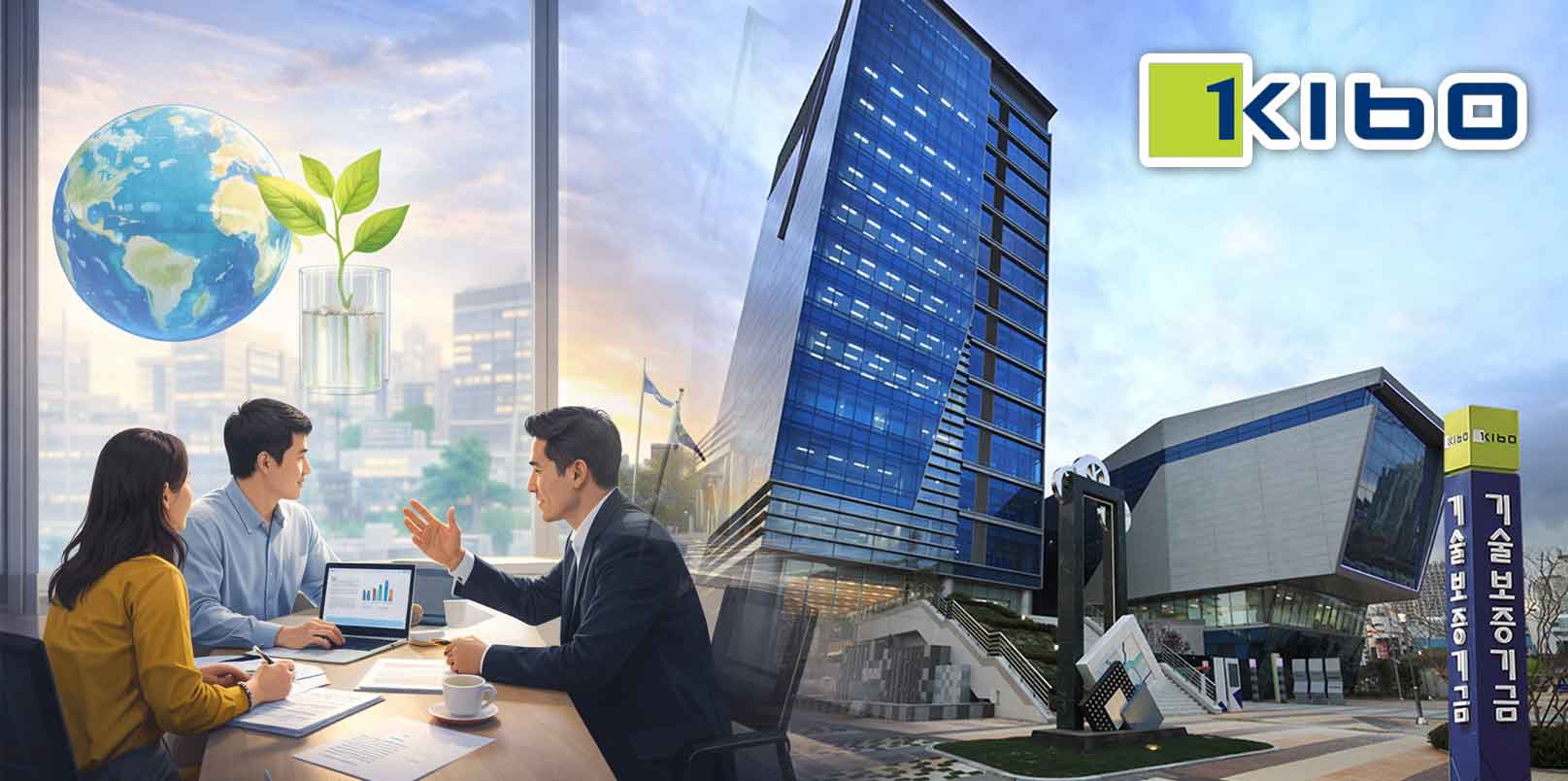For the first time in two decades, South Korea has turned the APEC SME Ministerial Meeting into more than a policy dialogue. By spearheading the Jeju Initiative and launching the APEC Startup Alliance, the country is positioning startups at the core of regional growth. This outcome signals a crucial shift: that global expansion is no longer a peripheral ambition for Asia-Pacific startups but is being embedded into institutional frameworks.
Korea Positions Startups at the Center of APEC Cooperation
South Korea has taken a decisive step in shaping the Asia-Pacific startup landscape. At the 31st APEC SME Ministerial Meeting, part of the whole APEC SME Week 2025 in Jeju on September 5, ministers from 21 economies agreed to adopt the “Jeju Initiative” and officially launch the APEC Startup Alliance — a regional platform that will connect startup ecosystems, build permanent networks, and foster innovation-driven growth.
This marks the first time in 20 years that Korea has chaired the APEC SME Ministerial since Daegu in 2005, and the first new initiative to be adopted across any of this year’s APEC ministerial gatherings. It represents both policy leadership and a practical expansion of its startup diplomacy for South Korea.
What the Jeju Initiative Brings
The Jeju Initiative, proposed by Korea’s Ministry of SMEs and Startups (MSS), sets out concrete measures to strengthen cross-border startup collaboration.
The program’s key components include:
- Annual forums to keep startup ecosystems connected across member economies.
- An online information-sharing platform to exchange data on policies, investor networks, and ecosystem trends.
- Permanent cooperation networks linking governments, startups, investors, and research institutions.
Jeju Initiative’s framework builds on the legacy of the 2005 Daegu Initiative and the APEC Innovation Center, which Korea has operated for the past two decades. By evolving that model into a formal Startup Alliance, member economies aim to create a results-driven, action-oriented collaboration system rather than another symbolic declaration.
Minister Han Seong-sook explained at the joint press conference:
“Networking cannot be limited to investors alone. Governments, policymakers, and researchers must all be part of the conversation. The consensus was clear: we need an open, inclusive system that reflects the different startup characteristics and policy directions of each economy.”
APEC SME Ministerial Meeting 2025: From Words to Action
The joint declaration adopted at the 31st APEC SME Ministerial Meeting 2025 alongside the Jeju Initiative emphasized three shared commitments:
- Innovation-driven growth through new technologies.
- Sustainable growth supported by smart policy.
- Inclusive growth enabled by stronger regional connectivity.
In practice, this means greater policy exchange on AI adoption, digital transformation, cybersecurity, demographic challenges, and SME participation in global value chains.
APEC Secretariat Executive Director Eduardo Pedrosa underlined this point:
“This was a very successful meeting. What matters now is moving from words to actions. Cooperation across APEC economies is essential — and while the journey is long, it will be achieved through collaboration.”
South Korea as the Hub of Regional Startup Ecosystems
The adoption of the Jeju Initiative also signals recognition of Korea’s leadership in startup policy. Member economies agreed that Korea will play a central role in driving the new alliance.
Through this initiative, South Korea may help gather information, connect stakeholders, or even support ecosystem development through policy exchange or official development assistance (ODA) mechanisms for economies without a strong startup ecosystem yet.
Minister Han Seong-sook emphasized that the alliance is designed to function as a “bridgehead for global expansion”, accelerating the international growth of startups and supporting Korea’s ambition to become one of the world’s top four venture powerhouses.
Ecosystem Participation and Global Attention
The ministerial was not limited to policy adoption. It also drew more than 20,000 participants across related events, including Global Startup Day, the Innovation Network Forum, and the Global Venture Investment Summit — the largest venture investment event ever held in Korea.
The summit brought together 147 institutions from 17 countries, with more than 250 global participants. Korean startups showcased their capabilities in sectors ranging from AI semiconductors (Rebellions) and autonomous driving (Autonomous A2Z) to fashion platforms (Musinsa) and IP-driven content (The Pinkfong Company). These sessions doubled as investment roadshows, leveraging the presence of global investors brought in through APEC.
Exhibition booths also gave ministers and investors direct exposure to Korean SMEs’ innovations in AI, K-beauty, and digital technologies. Several startups used the opportunity to attract overseas investment and secure pathways into foreign markets.
Strategic Bilateral Engagement
On the sidelines of the ministerial, Minister Han held bilateral meetings with counterparts from Indonesia, Peru, China, Japan, Vietnam, Taiwan, and Malaysia. Discussions focused on SME cooperation, startup policy exchange, and follow-up measures to embed the Jeju Initiative into broader economic ties.
Minister Han Seong-sook reflected on the discussions:
“At times it felt as if we were one government debating together. The common ground was remarkable — from digital and AI-driven innovation to the urgency of building collaborative startup networks across the region.”
Jeju Initiative: Korea’s Diplomatic Achievement and Economic Strategy
Furthermore, the Jeju Initiative represents a shift from fragmented policy dialogue toward structured, long-term startup cooperation in the entire Asia-Pacific region. Meanwhile, for South Korea, this program is both a diplomatic achievement and an economic strategy: positioning its SMEs and startups at the heart of global value chains while reinforcing the country’s reputation as a hub for innovation-driven growth.
After all, in a global environment shaped by protectionist trade measures and economic uncertainty, anchoring SMEs in cross-border alliances is more than symbolic. It is a practical strategy to secure market access, credibility, and sustained growth.
APEC Startup Alliance: Translating Policy into Institutional Frameworks
Ultimately, the launch of the APEC Startup Alliance reflects Korea’s ability to translate policy leadership into institutional frameworks that benefit not just its own startups but the wider Asia-Pacific ecosystem.
By hosting the Jeju Initiative, Korea has ensured that startups are no longer a side note in SME cooperation — they are now central to APEC’s shared agenda for innovation, sustainability, and inclusive growth.
– Stay Ahead in Korea’s Startup Scene –
Get real-time insights, funding updates, and policy shifts shaping Korea’s innovation ecosystem.
➡️ Follow KoreaTechDesk on LinkedIn, X (Twitter), Threads, Bluesky, Telegram, Facebook, and WhatsApp Channel.






